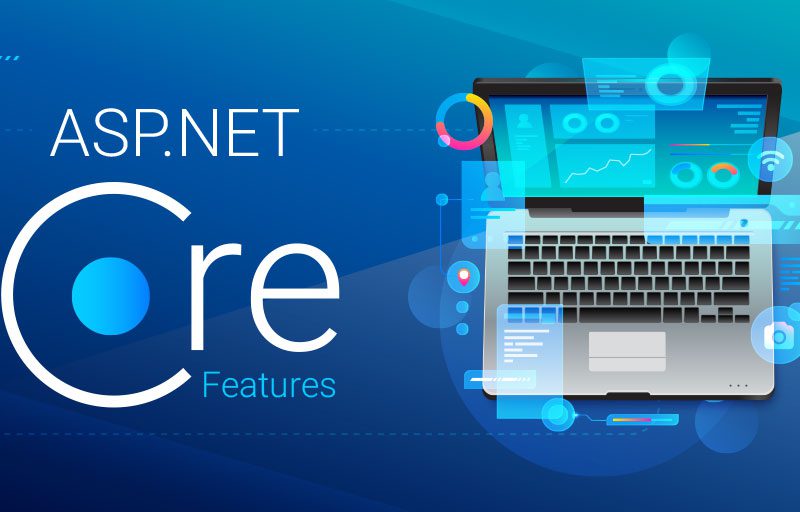Cloudflare is one of the most widely-used web performance and security companies in the world. Most people know Cloudflare for its ability to optimize website performance, protect against DDoS attacks, and provide Content Delivery Network (CDN) services. However, there are many lesser-known facts about Cloudflare that most users are unaware of. This article will dive deep into some of the hidden features, surprising uses, and interesting aspects of Cloudflare that can add value to your website or business.
1. Cloudflare Doesn’t Host Content
One of the biggest misconceptions about Cloudflare is that it functions as a web hosting provider. Cloudflare does not host any content. Instead, it serves as an intermediary layer that provides performance improvements and security to your existing website, regardless of where it’s hosted.
Cloudflare works by sitting between your users and your web server, caching content at their various data centers around the world and using a suite of tools to speed up and secure your website. Hosting itself is managed by third-party hosting providers, while Cloudflare optimizes and protects the connection between visitors and your site.
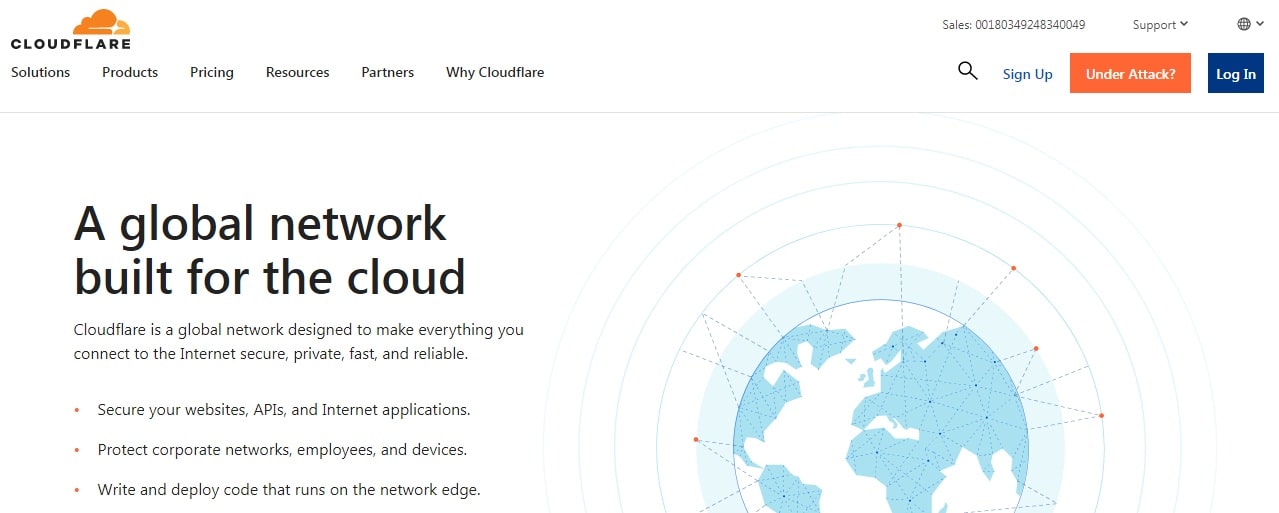
2. Cloudflare Has Over 200 Data Centers
When people think of CDNs, they usually consider a few global locations where content is cached. However, Cloudflare operates a massive global network of over 200 data centers in locations worldwide. The extent of this network allows Cloudflare to serve content from locations close to the users, reducing latency and ensuring that content loads as fast as possible, no matter where users are accessing it from.
These data centers are strategically located in different countries to ensure that every region has fast access to the cached content. This extensive network gives Cloudflare a considerable edge in speed and scalability compared to smaller CDNs with limited server locations.
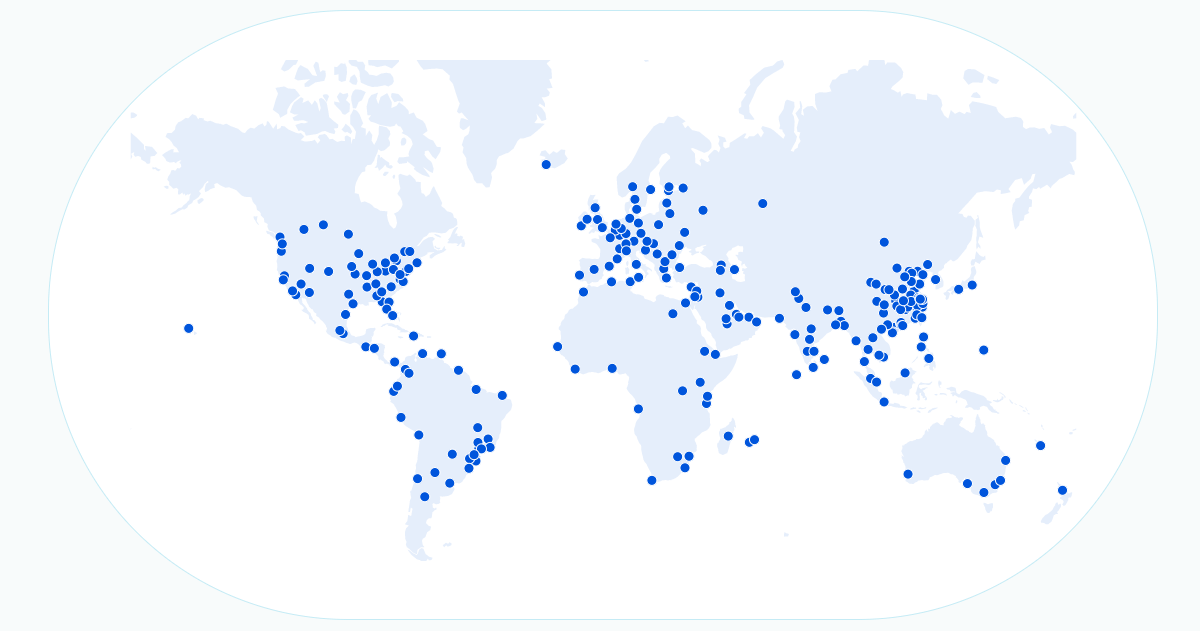
3. FREE DDOS Protection
Distributed Denial of Service (DDoS) attacks are one of the most disruptive cyber threats, capable of taking down entire websites by overwhelming servers with malicious traffic. Many DDoS protection services charge high fees for mitigation, but Cloudflare offers DDoS protection for free, even for its non-paying customers.
This means that if you’re on the free Cloudflare plan, you still benefit from the same DDoS mitigation technology used by some of the biggest companies in the world. Cloudflare automatically detects and neutralizes attacks before they can harm your website, regardless of whether you’re a small blog or a large enterprise.
4. Serverless Computing With Cloudflare Workers
Another lesser-known feature of Cloudflare is its serverless computing platform, Cloudflare Workers. This platform allows developers to write and deploy JavaScript (or any WebAssembly code) directly on Cloudflare’s network, executing code at the edge of the network closer to end-users, leading to significantly faster execution times.
Cloudflare Workers can be used to build serverless APIs, run background tasks, and perform various other functions without the need for traditional servers. Since Workers are run on Cloudflare’s global edge network, they can execute requests in just milliseconds, making them highly efficient for specific use cases.
5. Automatic SSL/TLS Encryption
For many website owners, setting up an SSL certificate to secure their site with HTTPS can be a complicated and costly process. However, Cloudflare simplifies this by automatically providing SSL/TLS encryption to websites, even for those using the free plan.
Cloudflare’s Universal SSL automatically encrypts traffic between the user’s browser and Cloudflare’s servers. If your website doesn’t already have an SSL certificate, Cloudflare can still encrypt traffic to users, providing an easy way to secure your site and improve SEO rankings without the hassle of purchasing and installing a certificate.
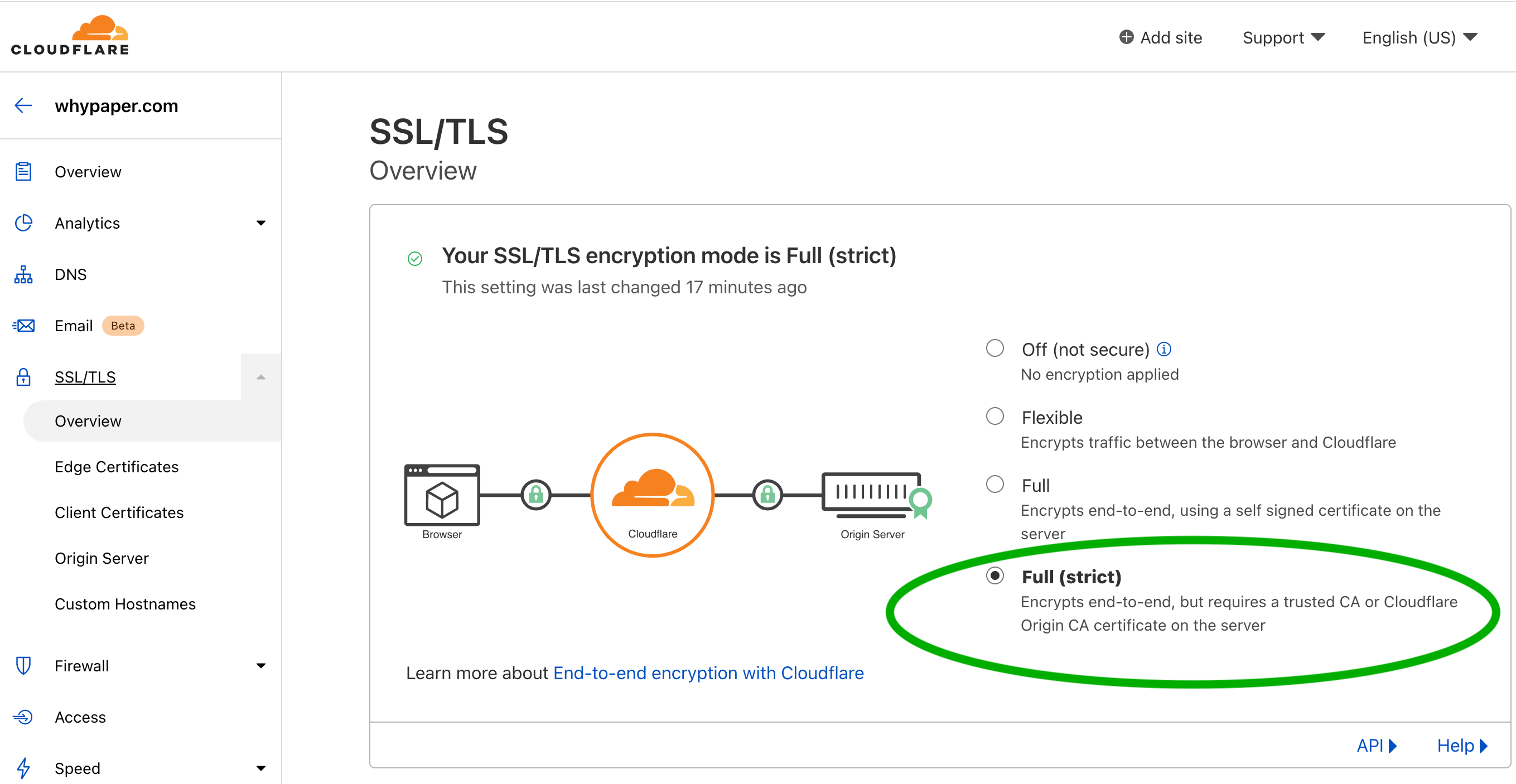
6. Supports HTTP/2 and HTTP/3
Cloudflare is always on the cutting edge when it comes to implementing new web technologies. It was one of the first companies to support HTTP/2 and HTTP/3, two of the latest versions of the HTTP protocol that improve web performance.
HTTP/2 allows for multiple requests to be sent over the same connection, speeding up the loading of web pages by enabling the server to push resources to the client more efficiently. HTTP/3, which is built on QUIC (a UDP-based transport protocol), further improves speed and security by reducing the time it takes to establish secure connections and increasing the efficiency of data transmission.
The best part is that Cloudflare automatically enables HTTP/2 and HTTP/3 for websites using its services without any additional configuration required from the user.
7. Cloudflare Has a Privacy-First DNS Service: 1.1.1.1
Cloudflare is not just a CDN provider but also offers 1.1.1.1, a privacy-focused DNS resolver service. Many people don’t realize that your Internet Service Provider (ISP) can track and log the websites you visit via DNS queries. Cloudflare’s 1.1.1.1 service, in contrast, is designed to be fast and to not log any identifiable user data.
In addition to privacy, 1.1.1.1 is one of the fastest DNS resolvers in the world, helping users resolve domain names quicker than traditional DNS services, which translates into faster loading websites.
For users who want an even more secure and private experience, Cloudflare also offers Warp, a VPN-like service built into the 1.1.1.1 app, which encrypts traffic to prevent third-party eavesdropping and improve online security.
8. Cloudflare Can Optimize Mobile Performance
While Cloudflare is often associated with desktop website performance, it also offers features that significantly optimize mobile browsing. This includes services such as Mobile Image Compression (through Cloudflare’s Polish feature) and Adaptive Image Resizing, which adjusts image resolution based on the user’s screen size and device, making mobile pages load faster.
Additionally, Cloudflare can optimize code and resources for mobile users by prioritizing critical resources and using features such as Lazy Loading, where images and resources are loaded only when they appear in the user’s viewport.
9. You Can Use Cloudflare for FREE
One of the reasons Cloudflare is so popular is because it offers a free plan that includes many of the same core services and features as the paid tiers, such as DDoS protection, a global CDN, SSL encryption, and performance optimization. For small businesses and personal projects, this free tier is often enough to significantly improve the speed, security, and reliability of a website without any additional costs.
While paid plans offer more advanced features, such as a Web Application Firewall (WAF), custom SSL certificates, and advanced analytics, the free version of Cloudflare is one of the most feature-rich free offerings in the web performance and security space.
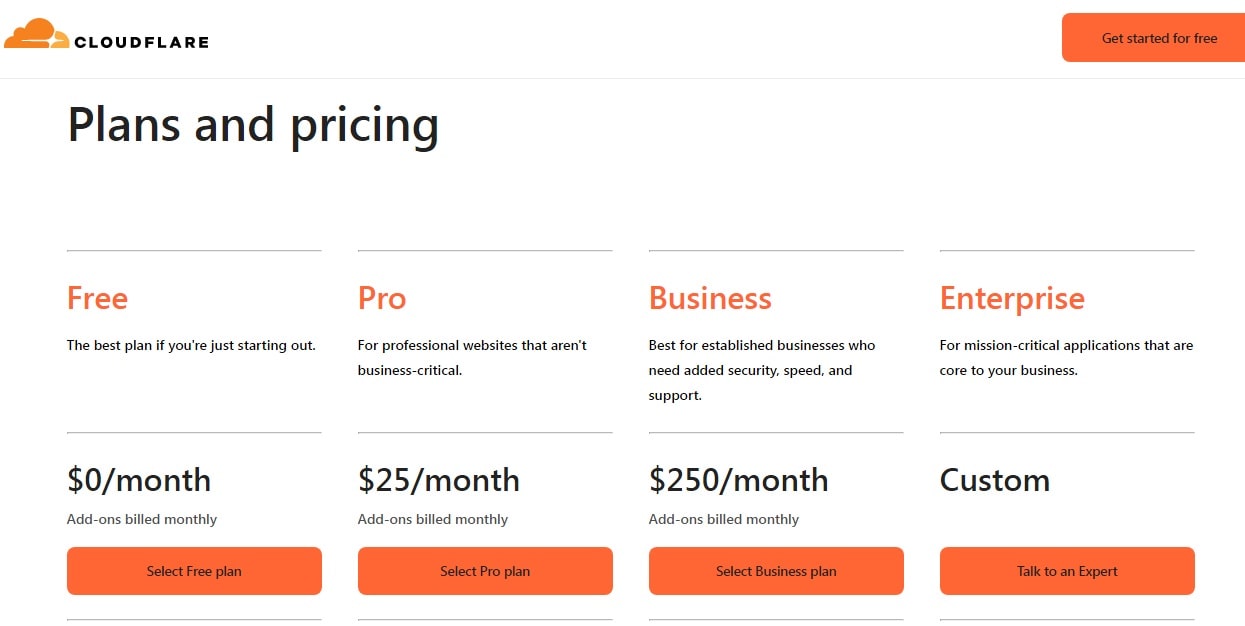
10. Cloudflare Helps Reduce Bandwidth Costs
Cloudflare helps reduce bandwidth costs for website owners by caching content on its servers and serving it to visitors from the nearest data center. By doing so, it reduces the number of requests that need to go back to the origin server.
For high-traffic websites, this reduction in requests can result in significant savings on bandwidth, especially for hosting providers that charge based on data usage. The more requests Cloudflare can serve from its cache, the fewer resources your origin server will need to expend, ultimately reducing hosting and bandwidth costs.
11. Cloudflare Offers a Custom Web Application Firewall (WAF)
One of the more advanced features of Cloudflare is its Web Application Firewall (WAF), which provides additional protection against cyberattacks by filtering and blocking malicious traffic. While many users know about Cloudflare’s DDoS protection, fewer are aware of the WAF, which can defend against common vulnerabilities like SQL injection and cross-site scripting (XSS).
The WAF is highly customizable, allowing developers to create their own security rules to defend against specific threats that might target their websites. This feature is available on Cloudflare’s paid plans and is essential for websites dealing with sensitive information or needing higher levels of security.
Conclusion
Cloudflare is far more than just a simple CDN service—it’s a comprehensive suite of performance optimization and security tools that benefit businesses of all sizes. Whether you’re running a small blog or a large-scale enterprise application, Cloudflare offers a range of features to accelerate website speed, reduce downtime, and enhance security.
Combining ASPHostPortal hosting with Cloudflare provides a powerful solution for businesses and developers seeking optimal performance, security, and reliability for their ASP.NET applications. ASPHostPortal delivers specialized hosting for ASP.NET with high-speed SSD servers, strong customer support, and affordable pricing. When paired with Cloudflare’s global Content Delivery Network (CDN) and security features, this combination significantly enhances website speed, reduces latency, and boosts uptime by utilizing Cloudflare’s vast network of over 200 data centers worldwide.
Additionally, Cloudflare’s free SSL certificates, DDoS protection, and web application firewall (WAF) help to safeguard your website from malicious attacks, all while improving user experience with faster load times through its caching and optimization features. Cloudflare’s automatic optimization for HTTP/2 and HTTP/3 further speeds up data transfer and reduces load times, making this combination ideal for businesses seeking fast, secure, and reliable ASP.NET hosting.
Overall, using ASPHostPortal with Cloudflare provides a well-rounded, cost-effective hosting environment tailored for modern businesses, combining performance enhancements, cutting-edge security, and improved scalability, without the need for expensive infrastructure upgrades.

Javier is Content Specialist and also .NET developer. He writes helpful guides and articles, assist with other marketing and .NET community work


